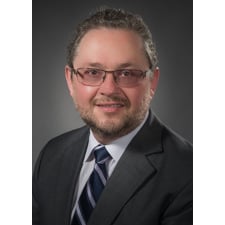David Zeltsman, MD
27005 76th Avenue
New Hyde Park, NY 11040
New Hyde Park, NY 11040
David Zeltsman, MD, is the chief of thoracic surgery and director of minimally invasive thoracic surgery at Northwell Health, which he joined in 2005. He is also professor in the departments of cardiovascular and thoracic surgery, and otolaryngology, at the Donald and Barbara Zucker School of Medicine at Hofstra/Northwell.
Love for medicine is a thread that runs through generations of Dr. Zeltsman's family. Not only were his parents and grandparents physicians, but so is his wife and two of his children. While he was growing up in the former Soviet Union, he gained valuable perspective on the medical field and spent his early career as a pediatric surgeon in Moscow before enrolling in a cardiothoracic surgery fellowship and continuing his training the U.S. in the early 1990s.
“What I appreciate about medicine and this specialty is the ability to establish a lifelong commitment to my patients,” he says. “Particularly with thoracic oncology, I have relationships with patients that deepen their level of care.”
A particular specialty of Dr. Zeltsman’s care is his ability to perform a revolutionary procedure called single incision, or uniportal, surgery. The procedure, which requires exceptional precision and expertise, uses only one small incision to address conditions such as lung cancer and esophageal cancer. Northwell is one of only a few healthcare systems in the world that offer it.
“About 99 percent of the surgeries I perform are done with uniportal,” he says. “This is a minimally invasive procedure that allows for better recovery, less pain, and the ability to get to additional treatments sooner if the patient needs them. For example, they can start chemotherapy or radiation weeks earlier than they might otherwise.”
Dr. Zeltsman works closely with other experts at Northwell in specialties like medical oncology, radiation oncology, head and neck surgery, pulmonology, and gastroenterology. He says the team approach makes all the difference when it comes to patient care.
“Collaboration is absolutely invaluable because what I do in the operating room is only one part of care,” he says. “By having a team, patients feel more supported and at ease, and that’s extremely important because when you’re diagnosed with a serious condition, it can feel like your world is crashing down. You need to know you’re not alone, there's a whole team here for you.”

